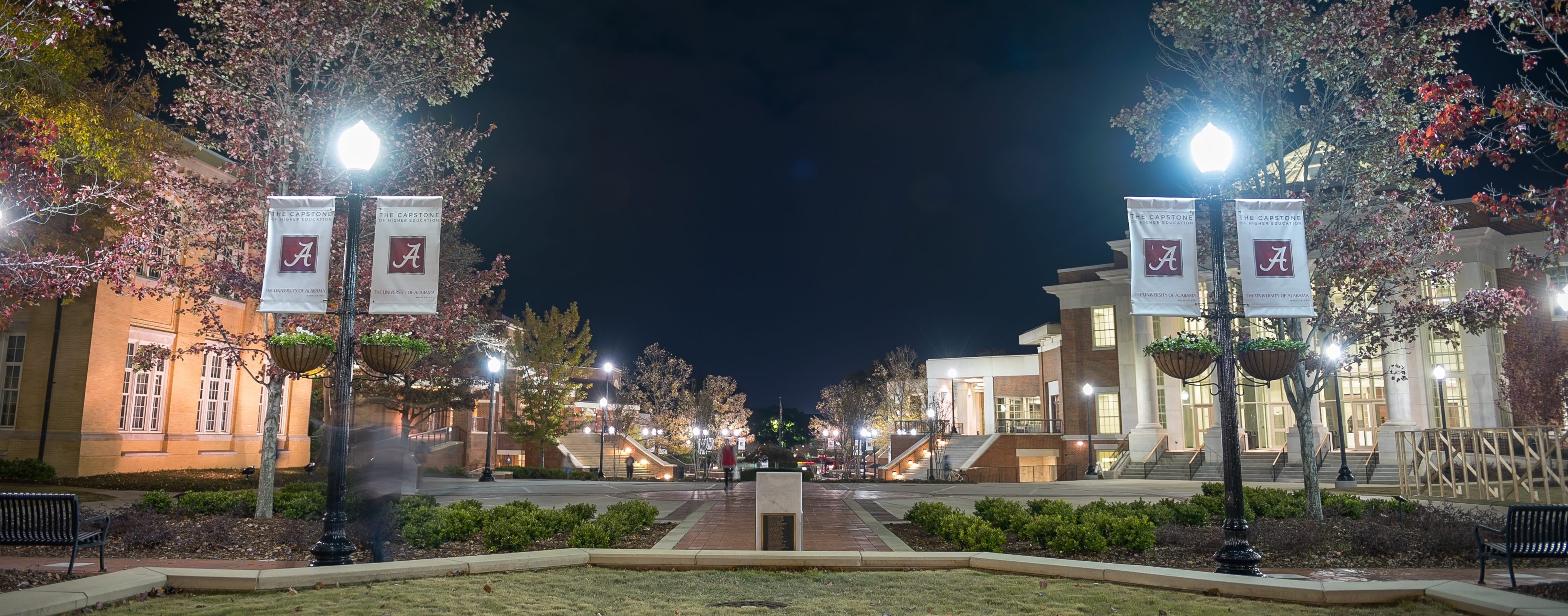How Individuals Can Help Reduce Energy Consumption at UA
Holiday Campus Closures
For Winter Break, Spring Break, and Thanksgiving Campus Closures
- Turn off all lights
- Unplug equipment that continue using energy (i.e. cell phone chargers, coffee makers, copiers, computers, monitors, printers, tv’s, game stations, etc…)
- Adjust thermostat: Winter time adjust temperature setpoint to 68F and for warmer weather adjust thermostat to 76F.
- Close all curtains/blinds in the windows
Lights
- Turn off lights. When you leave the room, turn off incandescent lights immediately and turn off fluorescent lights when gone for more than 7 minutes. Turn off all lights when you go to bed at night.
- Replace incandescent lights with compact fluorescent lights (CFLs) or L.E.D. lights for desk lamps. Using CFLs instead of comparable incandescent bulbs can save about 50 percent on your lighting costs. CFLs use only one-fourth the energy and last up to 7 times longer. L.E.D. lamps can use only 10% of the energy it takes an incandescent to use and last 40 times longer.
- Use natural lighting or day lighting. When feasible, turn off lights near windows.
- Use task lighting instead of brightly lighting an entire room. Focus the light only where you need it by directly illuminate work areas with compact fluorescent lights.
| Energy Efficiency | Incandescent bulbs (60 watt) | Compact Fluorescents (CFLs) | Light Emitting Diodes (LEDs) |
| Life Span (average) | 1,200 hours | 8,000 hours | 50,000 hours |
| Watts of Electricity used | 60 watts | 13-15 watts | 6-8 watts |
Appliances
- Turn off TV’s, radios, coffee makers, and similar appliances when they are not in use.
- Unplug equipment that continue to use energy when not in use (i.e. cell phone chargers, coffee makers, computers and printers, DVRs, PlayStation’s/Xboxes, etc.).
- Run only full loads when using the dishwasher and clothes washing machines.
- Always purchase energy efficient ENERGY STAR® products.
Computers, Printers, and Photocopiers
- Turn off all devices whenever they will not be used for more than two hours. This also increases the life of your equipment.
- Set your monitor to “sleep mode” after 15 minutes of inactivity (Screen savers do not save energy)
- Enable the low energy standby feature on photocopiers and printers. If your equipment does not have this feature, then it should be turned off when it is not to be used for more than two hours.
- Purchase only equipment that have a power management feature and enable it.
- Photocopy only what you need. Always use the second side of paper, either by printing on both sides or using the blank side as scrap paper. Use e-mail instead of printing and mailing printed copies.
- Ink-jet printers use approximately 1/5 the energy of laser printers.
- Laptop computers use approximately 1/4 the energy of desktop computers
HVAC & Thermostats
- Set room thermostats to 74 – 76 degrees in the summer and 68 – 70 degrees in the winter. (Dress appropriately)
- Know and cooperate with scheduled hours of building operations. Do not expect a building to have fully operational HVAC systems during evenings and weekends when there is minimal occupant use.
- Do not place heat generating equipment (copiers, space heaters, etc) close to a thermostat. This interferes with the normal operation of the building HVAC system.
- Report overcooled (below 68 degrees) and overheated (above 74 degrees) spaces to the building representative. Heating and cooling represent half of all energy used on campus.
Windows and Doors
- Keep exterior doors and windows closed whenever the HVAC systems are operating to heat or cool the building
- In the winter months, open blinds on south-facing windows during the day to allow sunlight to naturally heat your workspace. At night, close blinds to reduce heat loss at night.
- Vestibule doors should not be propped open and should always close and latch behind you.
Space Heaters
- Reduce/Eliminate space heater use. Most of the space heaters are not needed because the buildings do provide approved temperatures (very few exceptions). Consider bringing a sweater to class or work.
- The average space heater consumes the same amount of energy as 180 L.E.D. Light Bulbs.
- If the room temperature is below our standard of 68 to 70 degrees, a maintenance work order should be written to have the system evaluated.
Personal Dress
- Wear clothing appropriate to the season and weather – lightweight clothing in summer and warmer clothes in winter.
- Wear layers of clothes so that you can adapt to the varying conditions in your classroom, workspace, or living area and still be comfortable.
Other Ideas
- Turn off bathroom exhaust fans, stove exhaust fans, and other small exhaust fans when they are not needed.
- Shorten your shower time. Showers account for 70% of the campus residential building water heating costs.
- Carpool, bike, or use mass transit when commuting to work and around campus.
- Close laboratory fume hood sashes whenever the fume hood is not being used (and whenever possible, even during use).
- Use stairs instead of elevators when feasible. This also helps maintain a healthier body.
Maintenance
- Notify your building rep or the appropriate maintenance personnel if your area is overheated in the winter or overcooled in the summer. Heating and cooling represent half of all energy used on campus.
If you have an energy saving idea, please contact Donnie Grill at 348-6656, or e-mail to dsgrill@ua.edu.
